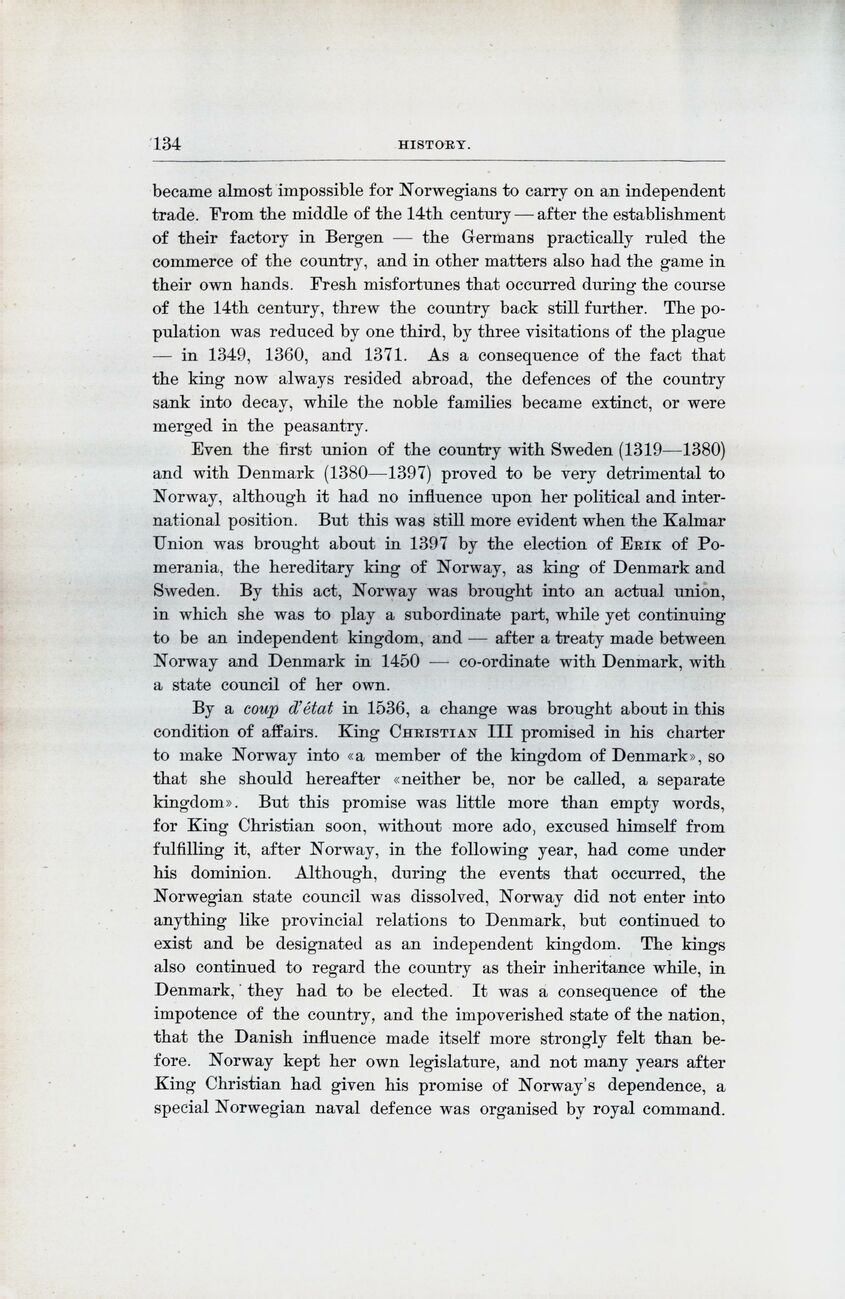
Full resolution (JPEG) - On this page / på denna sida - History, by O. A. Œverland

<< prev. page << föreg. sida << >> nästa sida >> next page >>
Below is the raw OCR text
from the above scanned image.
Do you see an error? Proofread the page now!
Här nedan syns maskintolkade texten från faksimilbilden ovan.
Ser du något fel? Korrekturläs sidan nu!
This page has been proofread at least once.
(diff)
(history)
Denna sida har korrekturlästs minst en gång.
(skillnad)
(historik)
became almost impossible for Norwegians to carrv on an independent
trade. From the middle of the 14th century — after the establishment
of their factory in Bergen — the Germans practically ruled the
commerce of the country, and in other matters also had the game in
their own hands. Fresh misfortunes that occurred during the course
of the 14th century, threw the country back still further. The
population was reduced by one third, by three visitations of the plague
— in 1349, 1360, and 1371. As a consequence of the fact that
the king now always resided abroad, the defences of the country
sank into decay, while the noble families became extinct, or were
merged in the peasantry.
Even the first union of the country with Sweden (1319—1380)
and with Denmark (1380—1397) proved to be very detrimental to
Norway, although it had no influence upon her political and
international position. But this was still more evident when the Kalmar
Union was brought about in 1397 by the election of Erik of
Pomerania, the hereditary king of Norway, as king of Denmark and
Sweden. By this act, Norway was brought into an actual union,
iu which she was to play a subordinate part, while yet continuing
to be an independent kingdom, and — after a treaty made between
Norway and Denmark in 1450 — co-ordinate with Denmark, with
a state council of her own.
By a coup d’état in 1536, a change was brought about in this
condition of affairs. King Christian III promised in his charter
to make Norway into «a member of the kingdom of Denmark», so
that she should hereafter «neither be, nor be called, a separate
kingdom». But this promise was little more than empty words,
for King Christian soon, without more ado, excused himself from
fulfilling it, after Norway, in the following year, had come under
his dominion. Although, during the events that occurred, the
Norwegian state council was dissolved, Norway did not enter into
anything like provincial relations to Denmark, but continued to
exist and be designated as an independent kingdom. The kings
also continued to regard the country as their inheritance while, in
Denmark, they had to be elected. It was a consequence of the
impotence of the country, and the impoverished state of the nation,
that the Danish influence made itself more strongly felt than
before. Norway kept her own legislature, and not many years after
King Christian had given his promise of Norway’s dependence, a
special Norwegian naval defence was organised by royal command.
<< prev. page << föreg. sida << >> nästa sida >> next page >>